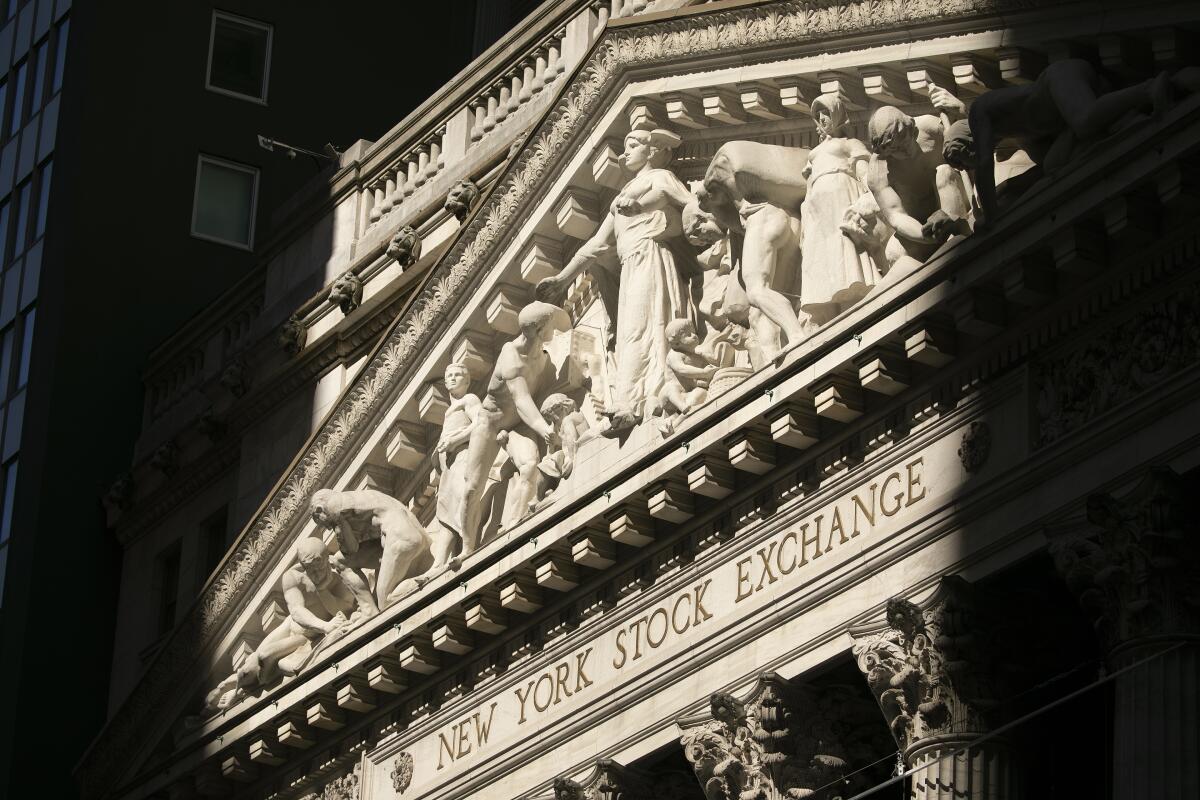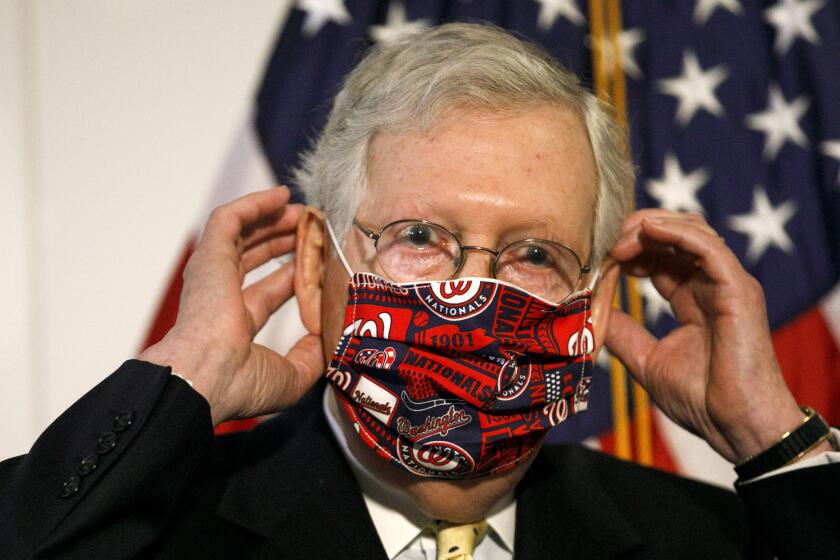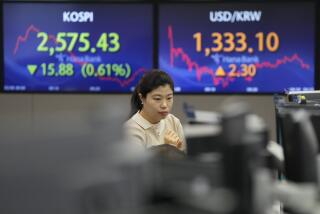Banks and energy firms lead stocks higher on Wall Street

Wall Street extended its recent run of gains Tuesday despite a late stumble that nearly wiped out the stock market’s gains for the day.
The Standard & Poor’s 500 index, which was up 0.8% in the early going, ended with a gain of 0.2%. Banks and energy companies led the gains, outweighing the tech-firm losses that pulled down the Nasdaq composite. Small-company stocks did better than the broader market.
The uptick followed strength in markets overseas as investors welcomed news that European leaders have agreed on a budget and coronavirus relief fund worth more than $2 trillion. The agreement comes as pressure intensifies on Congress and the White House to reach a deal on another economic aid package before a temporary boost in aid for unemployed Americans expires at the end of the month.
Hope for more economic aid from the government, following Europe’s example, helped put investors in a buying mood Tuesday, said Kristina Hooper, chief global market strategist for Invesco.
“The U.S. does not have the safety net that Europe has,” she said. “This is an environment in which there is going to be a need for more fiscal stimulus or you could see a real hit to consumers.”
Republicans propose more economic stimulus payments for Americans. Democrats previously called for the same. But still unknown is how much and who will get them.
The S&P 500 rose 5.46 points to 3,257.30. It was the index’s third straight gain. The Dow Jones industrial average rose 159.53 points, or 0.6%, to 26,840.40. The Nasdaq fell 86.73 points, or 0.8%, to 10,680.36, a day after notching its best day since the end of April and its latest all-time high.
Smaller-company stocks surged, driving the Russell 2000 index up 19.56 points, or 1.3%, to 1,487.51.
Treasury yields were mostly down, and the price of gold rose 1.5%, signs of continuing caution in the market.
After a 20% drop in the first three months of the year and then a nearly 20% gain in the April-through-June quarter, Wall Street has continued its winning ways so far in July. The S&P 500 has notched a weekly gain the last three weeks as investors cheered improvements in hiring, retail sales and other parts of the economy, along with rising hopes for a COVID-19 vaccine.
The Federal Reserve’s efforts to support markets and expectations that Washington will deliver more financial aid to help Americans weather the economic downturn have been key in keeping markets mostly pushing higher since stocks plunged in March.
The overall S&P 500 index has rallied back to within 3.9% of its February record high and is back to where it was in early June.
Still, worries remain that the rise of coronavirus counts across much of the country will derail efforts to reopen businesses that have been shut down to help slow the virus’ spread. That’s why Wall Street is betting on Washington to deliver another trillion-dollar round of economic aid.
“We still have areas of the U.S. that have become hot spots, there are localized lockdowns, and we expect the employment landscape will not be able to heal until we have the economy open completely,” said Quincy Krosby, chief market strategist at Prudential Financial. “The larger the [aid] package, the more it will continue to cushion the downside ramifications of the epidemic.”
Energy companies were by far the biggest gainers among the 11 sectors in the S&P 500, as the price of oil headed higher, an encouraging sign that markets hope economies will continue to recover. Occidental Petroleum leaped nearly 11%, leading all other stocks in the S&P 500. More than a dozen other energy companies also moved sharply higher.
Technology firms and companies that rely on consumer spending, sectors that are up the most this year, relinquished some of the gains they’d made a day earlier.
The rise in financial, energy and industrial stocks is a reversal in the market’s prevailing trend since the pandemic struck, which has been to favor companies that benefit from Americans largely stuck at home and increasingly relying upon technology, digital communication and e-commerce.
“Today you’re also seeing small-cap names move up at the expense of the tech names,” Krosby said.
Investors also had their eye on the latest batch of quarterly report cards from companies. Coca-Cola shares rose 2.3% and Philip Morris International shares gained 4.2% after the companies reported earnings that beat analysts’ forecasts.
Among the other big companies reporting results this week: Microsoft and Tesla issue results Wednesday; Intel, AT&T and Twitter on Thursday; and Verizon Communications and American Express on Friday.
The yield on the 10-year Treasury slipped to 0.59% from 0.61%. The yield is a benchmark for interest rates on mortgages and other consumer loans.
Benchmark U.S oil rose 2.8% to $41.96 a barrel. Brent crude oil, the international standard, rose 2.4% to $44.32 a barrel.
More to Read
Inside the business of entertainment
The Wide Shot brings you news, analysis and insights on everything from streaming wars to production — and what it all means for the future.
You may occasionally receive promotional content from the Los Angeles Times.











